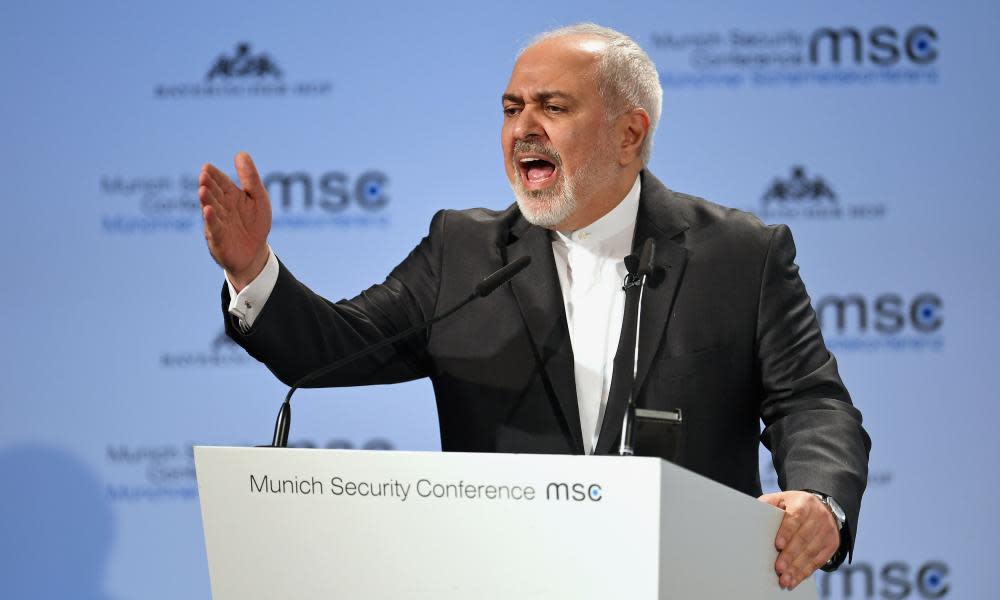Iran's foreign minister says public are losing faith in nuclear deal

The Iranian public are on the brink of abandoning faith in the nuclear deal signed with Europe and other world powers in 2015, putting pressure on the regime to pull out of the deal, Iran’s foreign minister has said.
Speaking at the Munich security conference, Javad Zarif also accused Israel of seeking war with Iran and said Europe needed to be prepared to “get wet if it wants to swim against the dangerous tide of US unilateralism”.
Zarif said 51% of the Iranian public still backed the deal, as he said the European Union had fallen short in setting up a mechanism to help EU firms trade with Iran after Donald Trump pulled the US out of the deal and reimposed sanctions.
He said Europe had made all the right statements on the nuclear deal “but it has not been prepared to make the investments, pay the price”.
Zarif said Iran had “long been the target of an unhealthy fixation, let’s say obsession” from the US. The US vice-president, Mike Pence, had “arrogantly demanded that Europe must join the United States in undermining its own security and breaking its obligations” over the nuclear deal.
He also warned of increased tensions with Israel, which carried out a series of airstrikes last month against what it said were facilities belonging to the Iranian Revolutionary Guards’ al-Quds force in Syria.
“Certainly, some people are looking for war ... Israel,” Zarif said. “The risk is great and the risk will be even greater if you continue to turn a blind eye to severe violations of international law.”
Zarif defended Iran’s role in Syria, which he said was at the request of the Syrian government, and said it intended to stay in the country as long as it was asked to do so.
Zarif also addressed claims by the Netherlands, France and Denmark that Tehran has been mounting attacks in Europe over the past year.
The Dutch government alleges that Iran organised two assassinations of Dutch-Iranian activists in 2015 and 2017. Denmark has said it stopped a Tehran-led plot to kill an Arab-Iranian opposition figure on its soil last year. France charged Iran with an attack on a rally of an exiled Iranian dissident group near Paris in 2018. Iran denies any involvement in the plots.
“It could be a false flag operation, entrapment, rogue operation, but it is not the work of a government that you should call crazy if we did it.”
Zarif’s underlying message was that Europe needed to do more to protect the Iranian reformers in Tehran from public pressure to abandon the deal as a mirage bringing no benefit.
The EU has announced a mechanism designed to encourage trade in humanitarian goods such as food and medicines but it is unlikely to boost European-Iranian trade, which is often seen by Iran as the quid pro quo for cooperating over its nuclear programme.
Zarif also rejected claims that Iran was in breach of UN resolutions by developing a missile programme for defensive purposes. France has led the calls that Europe may feel forced to impose sanctions if the programme is not halted.
Zarif said: “We do not design any of our missiles to carry nuclear weapons. We do not have any nuclear weapons. Inside Iran some were still recovering from the use of chemical weapons by Saddam Hussein supplied by Europe.”

 Yahoo News
Yahoo News 
